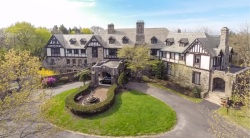
Parents and educators need to know as much about gifted children as possible to ensure their talents are given the opportunity to develop throughout their academic and personal life. There are different kinds of testing used to identify giftedness, and testing is just one kind of assessment.
Educators design testing tools to be non-biased, technically adequate, and equitable so that gifted students can be identified from diverse backgrounds. To differentiate things like curriculum and instruction, educators use pre- and post-testing, performance-based testing, and out-of-level testing.
When gifted students demonstrate advanced and complex learning, educators use testing results and assessments to change elements of individual as well as group programs in schools.
Testing and Quantitative Assessments
Achievement tests are commonly used in specific domains such as intellectual, creative, leadership, artistic, and specific academic subject areas. More than one test is required to help assess a student’s abilities in these areas.
Testing is an objective and consistent way to identify giftedness, and tests are often used as benchmarks for entrance into specific educational programs.
Achievement and ability tests provide scores to describe how a student performs relative to other students. They are quantitative in nature and measure what the student has learned and if the student is learning at an advanced level compared with peers.
Achievement tests can be one of several standardized tests like SAT, MAT or SRA, or one in a specific academic area like Math or Language Arts. In addition, there are tests designed especially for gifted students, and they include Test of Mathematical Abilities for Gifted Students or Screening Assessment for Gifted Elementary Students (SAGES).
Ability tests apply to the intellectual prowess of children and measure cognitive skills and IQ. While they are helpful in identifying intellectual levels, they do not measure other areas like creative or leadership.
Ability tests for individuals include Stanford Binet, Weschler Intelligence Scale for Children, Woodcock Johnson, and the Test of Nonverbal Intelligence. The latter is more appropriate and probably more accurate for low-income and culturally diverse children.
For gifted students in school, it is more likely that they will be part of group testing. This would include such tests as CogAT, Otis-Lennon, Hemmon-Nelson, and Matrix Analogies Test.
Qualitative Assessments
A test is usually given by a teacher or proctor who gives specific pre-set directions and follows a verbal script. The results are usually quantitative and reported as numbers. The test provides specific and limited information.
Assessment, on the other hand, comes in many different forms and different people. While a test administrator strives to be objective and impartial and not express an individual viewpoint, an assessment involves the assessor very much.
Where a test administrator does not impact test results, someone doing an assessment does impact results and in fact is part of the results. Clinical assessment, as an example, depends on training, theoretical viewpoint, personal and clinical experience, and research knowledge. The opinion of the person doing the assessment is extremely valuable from a qualitative perspective.
Intellectual ability is one assessment area. Another is educational ability, the ease and speed with which gifted children master academic skills. The more likely a child is gifted and to what extreme, the more difficult time that child will have in a traditional school setting and curriculum.
Assessing the gifted child’s abilities in this area is quite important. Skills that need to be evaluated include the ability to decode words, comprehend printed passages, understand math principles and processes, print and write legibly, and write various kinds of material.
Research indicates that extremely gifted children have higher abilities in these educational skills than gifted children, while gifted children have higher abilities than non- or marginally-gifted students.
Parent Assessment
Often overlooked in the assessment of gifted children are the insights, observations and opinions of the parents. The admission process of many schools, especially some private ones, does not include this information. However, the opinions of parents are very important in assessing a child, it is important to know the child’s personal history.
The assessment should include the child’s development, health background, family and social interaction, emotional issues, and educational background. Any assessment that does not include this information should be suspect.
Parents should present their opinions, especially on why they think their child is gifted, to interviewers. There should be a frank and open discussion with interviewers on what the parents have experienced relative to their gifted child. This is the foundation of any professional assessment.
The value of this information rests in part on the interviewing skills of the interviewer and the questions being asked. It also depends on the awareness and honesty of the parents and their answers. But it is always a rewarding and valuable process to go through.
Creative Assessment
Intellectual and educational assessments aside, there other assessments just as important. These fall into the areas of creative writing, art, music, performance, leadership, scientific thinking and much more.
Children with these gifts take on and complete activities and projects very advanced for their age and experience. Their skills are represented in portfolios, videotapes, and constructions of all types.
Many of these projects are independent of school and done out of high interest. Some are done with parent’s guidance. Some are done as school projects. They all represent a high level of commitment and achievement, and any creative undertaking like these should be encouraged and supported by teachers and parents alike. Evidence of these skills should definitely be part of any overall assessment.
Intuitive Assessment: Nonverbal Communications
A trained professional can provide highly valuable intuitive information based on interview sessions with gifted children. Sometimes based very much on first impressions but supplemented with subsequent meetings, the observations tell a lot about the child.
The nonverbal communications of the child can include body position, body movements, eye glances, the tone of voice, use of gestures, approach and avoidance behaviors.
Some children like being observed and interviewed. Others would rather be somewhere else. Those who are enthusiastic bring photographs, books, projects, artwork, toys or trophies. Each one tells a story about the child and adds to the assessment.
Interviewers report that gifted children give more detailed or comprehensive answers to questions. They show more interest and involvement. They are more positive and engaged.
There are many ways to assess a gifted child. All are important. In fact, parents should hesitate to hinge opinions and results on just one test or one kind of test. Seek the advice of many professionals. Stay involved in the process. Be supportive of the efforts to identify a child’s gifts and opportunities.
The extent that you can manage the assessment process for your gifted child is the extent that you will be measured.







0 responses to “Different Types of Gifted Assessments”